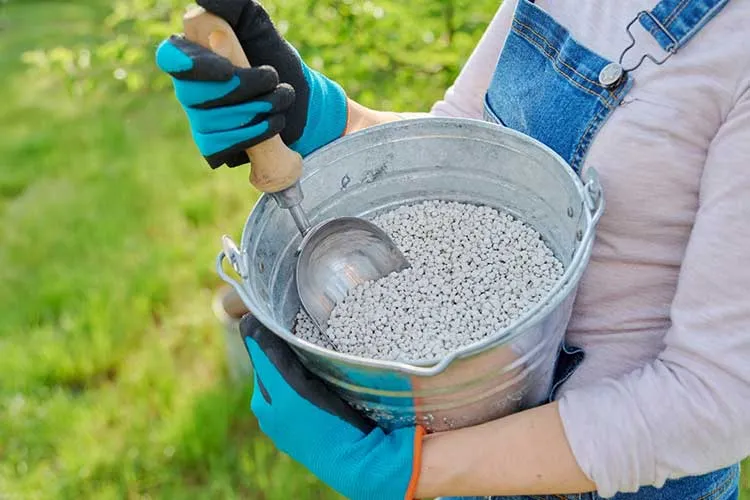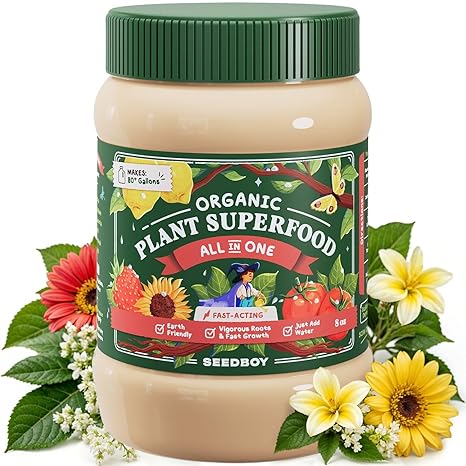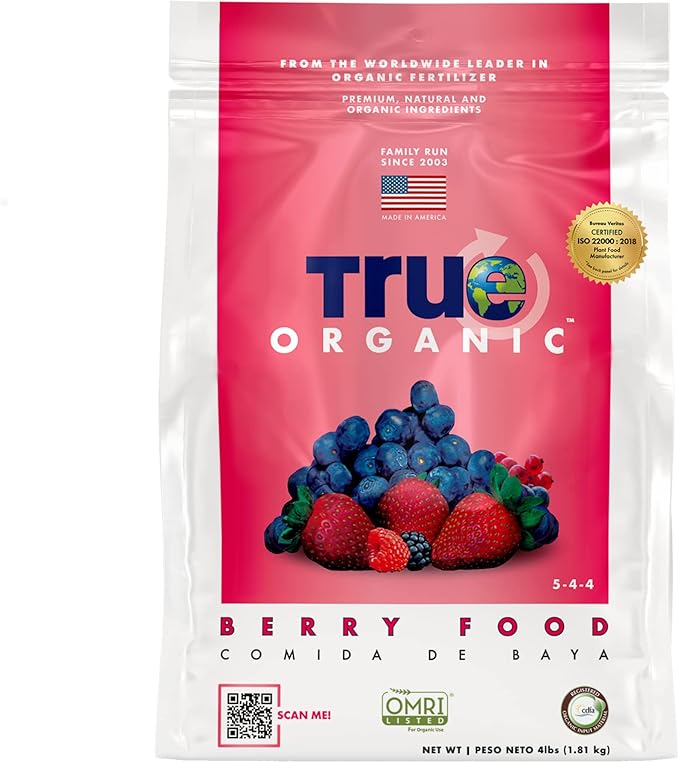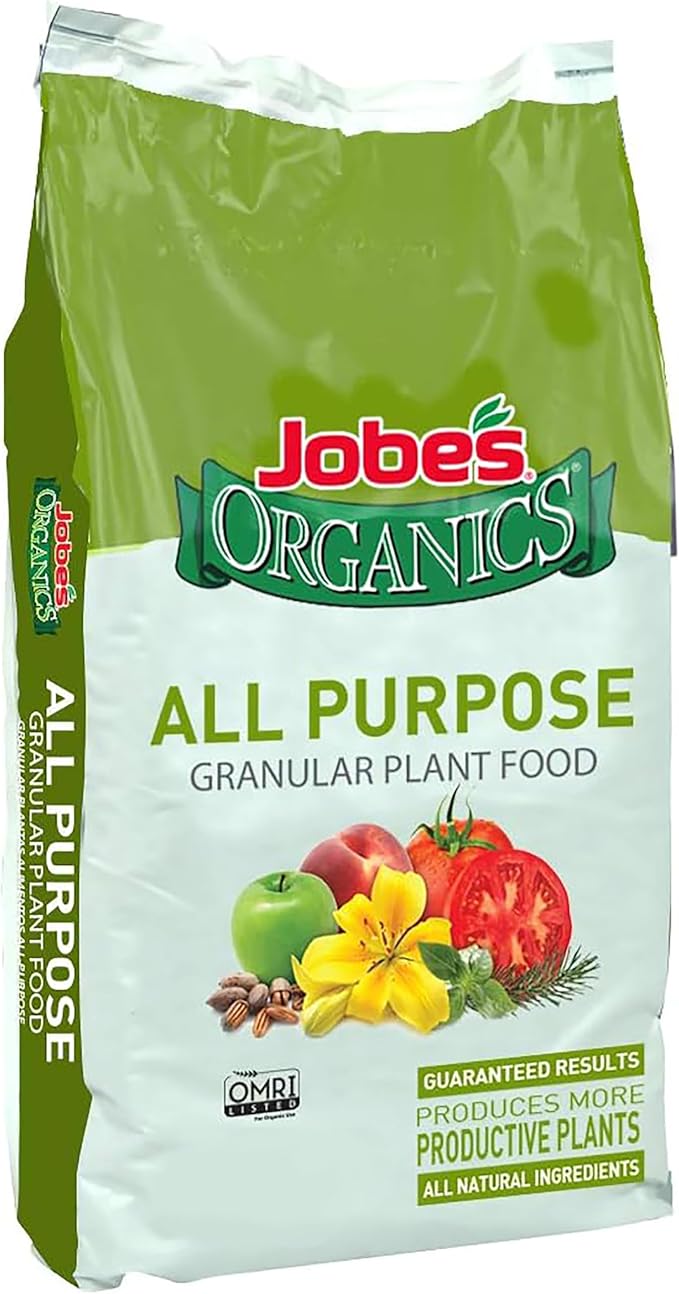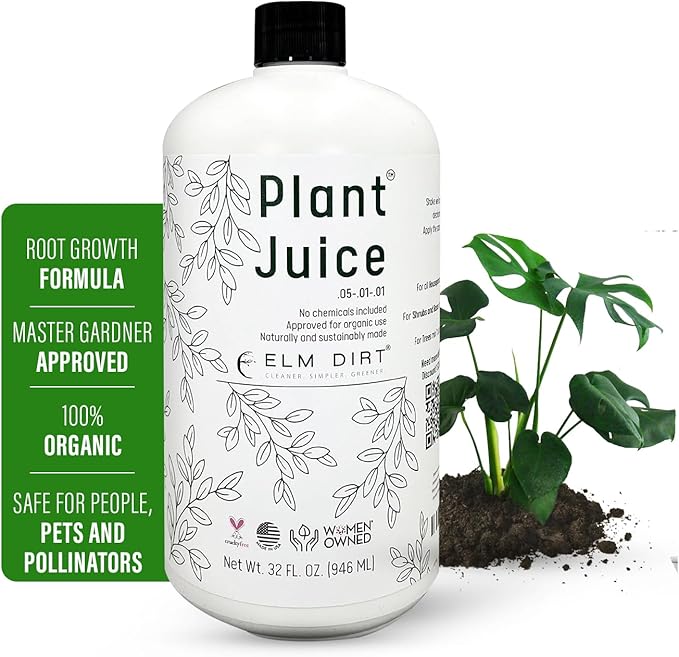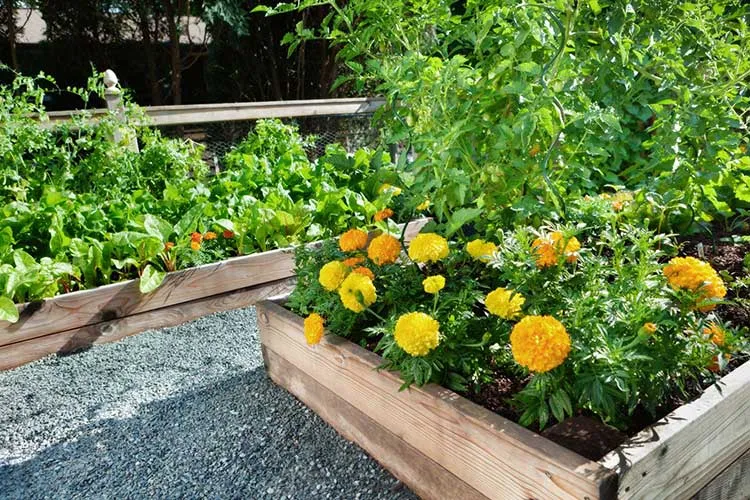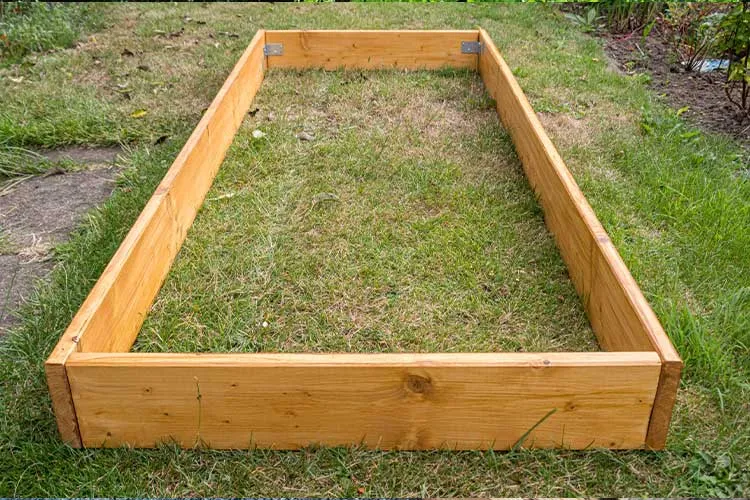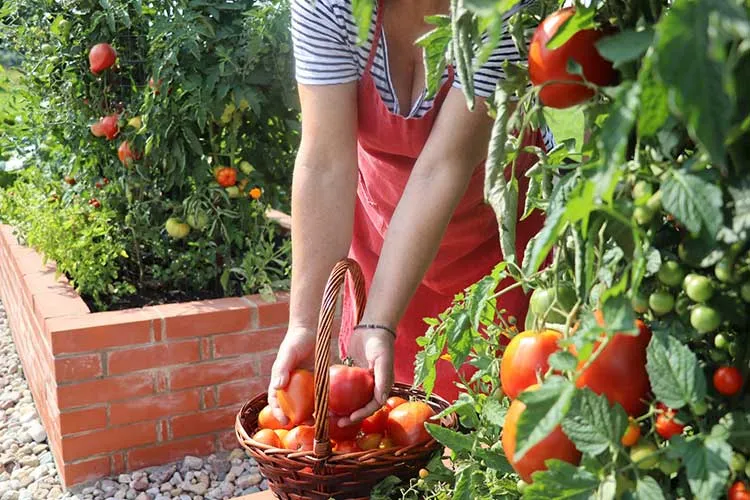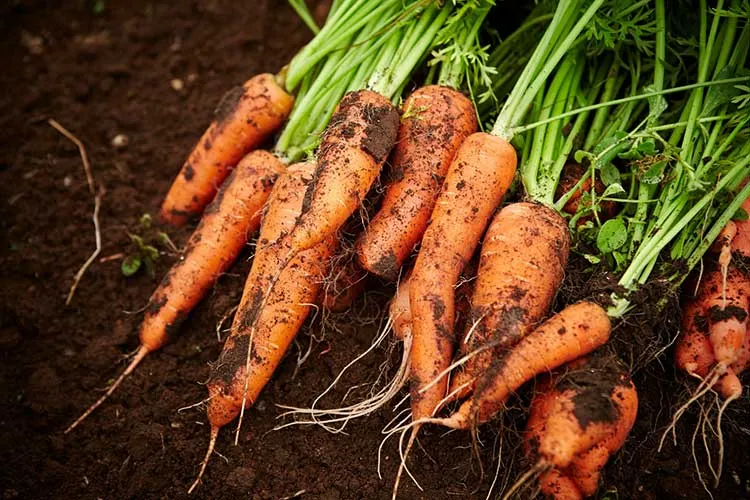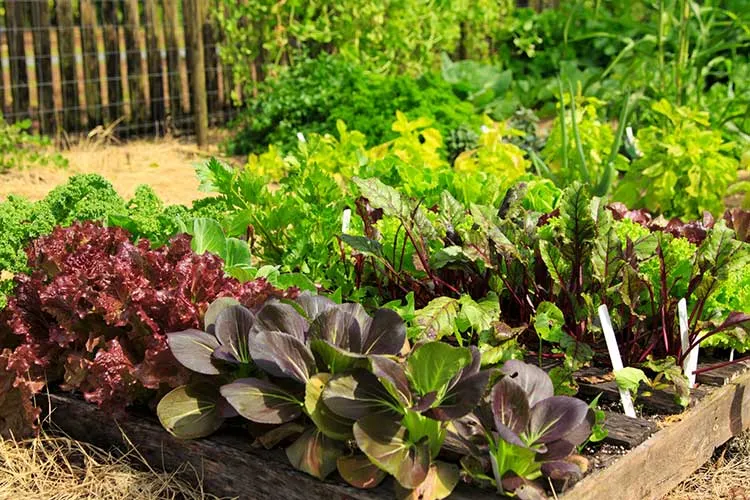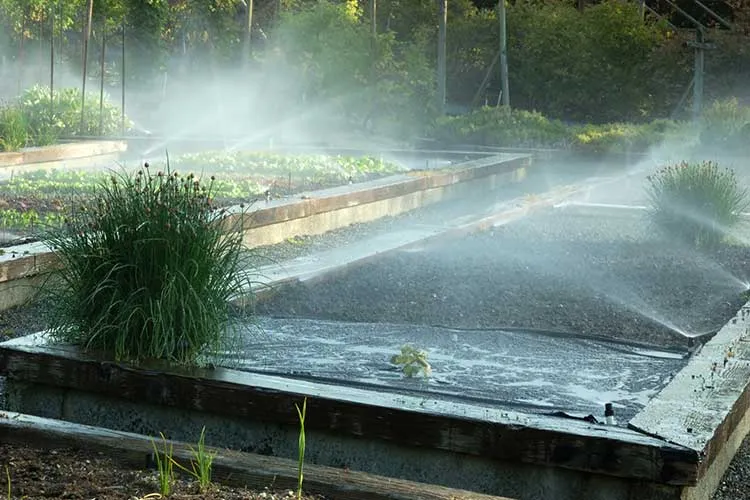Container plants rely on nutrient-rich soil to thrive but can quickly become weak and unproductive without the right fertilizer. Unlike garden beds, potted plants have limited access to natural nutrients, making fertilization essential. Commercial fertilizers promise fast growth, but synthetic options often lead to salt buildup, root damage, and depleted soil over time.
Conversely, organic fertilizers feed plants while improving soil health, ensuring long-term success. Studies show that organic matter boosts microbial activity, enhances moisture retention, and reduces the risk of nutrient runoff.
Choosing the right organic fertilizer can make all the difference if you’ve struggled with slow growth, yellowing leaves, or poor flowering. This article shares what works best and how to use it for maximum results.
What is the Best Organic Fertilizer for Container Plants?
Finding the right organic fertilizer for container plants can be tricky, but choosing the best one makes a huge difference in plant health and growth. Whether growing vegetables, herbs, flowers, or berries, a good organic fertilizer provides essential nutrients without synthetic chemicals. Slow-release granules, microbe-rich formulas, and liquid options all offer unique benefits. This list highlights six top-rated organic fertilizers that nourish plants naturally, improve soil health, and help your container garden thrive with less effort.
Seedboy’s Organic Plant Food
Seedboy’s Organic Plant Food is a solid choice if your container plants need a serious nutrient boost. Packed with natural ingredients, this fertilizer feeds your plants while improving soil health. Unlike synthetic options, it releases nutrients slowly, ensuring your plants get a steady supply of what they need to grow strong. Whether you’re tending to leafy greens, flowering plants, or herbs, this mix provides balanced nutrition without the risk of chemical buildup.
Seedboy’s blend of organic matter and beneficial microbes sets it apart. These nourish plants and create a thriving soil environment that promotes healthy root growth. It’s easy to apply—sprinkle it onto the soil and water it in. If you’re looking for a no-fuss, natural way to keep your container plants thriving, this one’s worth a try.
True Organic Berry Food
True Organic Berry Food is designed to give them exactly what they need to grow berries in containers. This fertilizer is packed with natural ingredients like poultry manure and potash, which support strong root development and improve fruit production. With a formula rich in essential nutrients, it helps berries grow bigger, sweeter, and more flavorful—all without synthetic chemicals.
One of the best things about this mix is its slow-release formula. Instead of overwhelming plants with nutrients all at once, it provides a steady supply over time, keeping your berry plants well-fed throughout their growing season. It’s also OMRI-listed for organic gardening, so you can feel good about using it. Mix it into the soil or top-dress your containers, and you’re set for a bountiful harvest.
Back to the Roots Organic All-Purpose Plant Food
Back to the Roots Organic All-Purpose Plant Food is a great option for a simple, effective way to nourish container plants. Made from organic ingredients like corn, soybean meal, and beneficial microbes, it provides a balanced mix of nutrients that work for everything from flowers to vegetables. Because it’s gentle yet effective, you won’t have to worry about burning or overloading your plants with chemicals.
This fertilizer stands out for its ease of use. The pellet form makes it easy to sprinkle onto the soil, and it breaks down gradually, releasing nutrients over time. It’s also sustainably made, so it’s a great pick for gardening organically with minimal environmental impact. Whether you’re growing herbs, flowers, or vegetables, this all-purpose blend keeps your plants healthy and productive.
Jobe’s Organics Granular All-Purpose Fertilizer
Jobe’s Organics Granular All-Purpose Fertilizer is a trusted name for organic fertilizers. This formula contains natural ingredients, including bone meal, feather meal, and beneficial bacteria, to promote strong plant growth. It’s especially useful for container plants, improving soil structure while providing essential nutrients.
One of Jobe’s Organics’ biggest advantages is its Biozome® technology—a special mix of microorganisms that help break down nutrients, making them more available to plants. This means better root development, stronger stems, and increased resistance to pests and diseases. Mix it into the top layer of soil, water it in, and let the slow-release formula do the work. Whether you’re growing flowers, herbs, or vegetables, this fertilizer supports healthy, thriving plants.
Burpee Organic Tomato & Vegetable Plant Food
If you’re growing tomatoes, peppers, or other veggies in containers, Burpee Organic Tomato & Vegetable Plant Food is a smart pick. This granular fertilizer is packed with plant-based nutrients and beneficial microbes that support vigorous growth and improve yield. It is designed specifically for vegetables and delivers the right balance of nitrogen, phosphorus, and potassium to help plants produce strong roots, lush foliage, and flavorful fruit.
A standout feature of this fertilizer is its long-lasting, slow-release formula. Instead of feeding plants all at once, it provides a steady supply of nutrients for up to three months. That means fewer applications and healthier plants with less effort. Mix it into the soil or sprinkle it around established plants at planting time if you want bigger, tastier harvests without synthetic additives.
Elm Dirt Plant Juice Organic Fertilizer for All Plants
Elm Dirt Plant Juice is a great, easy-to-use liquid option for container plants. Made from organic compost extracts, this fertilizer is packed with beneficial microbes and nutrients that promote strong root growth and overall plant health. Unlike granular fertilizers, it works quickly—plants can absorb it through their roots and leaves, making it an excellent pick for gardeners who want fast results.
One of the biggest benefits of Elm Dirt Plant Juice is its versatility. It works for flowers, vegetables, herbs, and even indoor plants, giving them a natural boost without the risk of chemical buildup. Just mix a small amount with water and apply it during regular watering. This is an easy and effective option if you prefer a liquid fertilizer that feeds plants while improving soil health.
What Is Organic Fertilizer?
Organic fertilizer is made from natural materials like compost, manure, bone meal, and plant-based ingredients. Unlike synthetic fertilizers, which are chemically processed, organic options break down slowly, enriching the soil with nutrients over time. They improve soil structure, encourage beneficial microbes, and retain moisture, creating a healthier environment for plant roots.
While synthetic fertilizers provide immediate nutrients, they can lead to nutrient imbalances and soil depletion. Organic fertilizers, on the other hand, support long-term soil fertility without harmful chemical buildup.
This makes them a sustainable choice for container plants, ensuring steady growth without the risk of chemical runoff.
Organic vs. Chemical Fertilizer: Key Differences and Benefits
Organic and chemical fertilizers provide nutrients but work in different ways. Organic fertilizers come from natural sources like compost, bone meal, and worm castings. They release nutrients gradually as they break down, improving soil structure and supporting microbial life. This slow release prevents nutrient burn and helps plants absorb what they need. In contrast, chemical fertilizers contain synthetic nutrients that dissolve quickly, offering an immediate boost but with a higher risk of over-fertilization.
One major difference is the environmental impact. Organic fertilizers enhance soil health and reduce runoff, while chemical fertilizers can contribute to water pollution and soil degradation. Over time, synthetic options may deplete soil microbes and organic matter, leading to dependency on repeated applications.
Pros of Organic Fertilizers:
- Improve soil structure and microbial activity
- Provide long-lasting nutrients
- Reduce chemical buildup in soil
- Safer for the environment and pollinators
Cons of Organic Fertilizers:
- Slower nutrient release
- It may have an odor
- It can be more expensive than chemical options
- Nutrient content varies depending on the source
Organic fertilizers help container plants maintain balanced nutrition without harming soil life, making them a great choice for sustainable gardening.
How to Add Organic Fertilizer to Potted Plants
Applying organic fertilizer correctly ensures your container plants get nutrients without overloading the soil. Different types of organic fertilizers require different application methods.
For granular fertilizers, sprinkle the recommended amount evenly over the soil surface, then mix it lightly with your fingers or a small tool. Water the plant afterward to help nutrients start breaking down. Liquid fertilizers should be diluted according to the instructions and applied directly to the soil or as a foliar spray.
Use them during regular watering for a quick nutrient boost. Compost or worm castings can be added as a top dressing, providing slow-release nutrients while improving soil structure. Slow-release fertilizers, such as organic pellets, should be mixed into the potting mix at planting or added to the topsoil every few months.
To avoid over-fertilization, start with smaller amounts and observe your plant’s response. Too much fertilizer can lead to weak, leggy growth or salt buildup in the soil. Flush the pot with water occasionally to prevent excess nutrients from accumulating.
How Often Should You Use Organic Fertilizer?
The frequency of applying organic fertilizer depends on the plant type, growth stage, and fertilizer form. Liquid fertilizers can be used every two to four weeks during active growth, while granular or slow-release options typically last one to three months. Compost or worm castings can be added every few months to enrich the soil.
During the growing season (spring and summer), feed plants more frequently to support healthy development. In fall and winter, reduce fertilization as plant growth slows. Always monitor your plants—yellowing leaves or slow growth may indicate a need for more nutrients.
More Growing Tips & Insight
5 Best Phosphorus Fertilizers for Stronger Bigger Blooms
Best Fertilizer for Flowering Plants in Pots
How to Pick the Perfect Fertilizer for Tomato Plants

